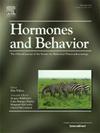Does a single dose of testosterone increase willingness to compete, confidence, and risk-taking in men? Evidence from two randomised placebo-controlled experiments funding
IF 2.4
3区 医学
Q2 BEHAVIORAL SCIENCES
引用次数: 0
Abstract
The sex steroid hormone testosterone regulates aggression and display of dominance in non-human animals. According to the Challenge Hypothesis, these effects arise from context-sensitive testosterone increases that facilitate inter-male competitions over resources, status, and mates. A growing body of literature documents similar testosterone effects on behaviors related to competition and risk-taking in humans, though the findings have been mixed. Here, we report two randomised double-blind placebo-controlled testosterone administration experiments (N1 = 91, N2 = 242) designed independently by researchers in Europe and the US. Both experiments investigated the effect of a single dose of testosterone (at 4 h and 21–24 h post administration) on men's willingness to compete, confidence, and risk-taking in economic tasks. We estimate weak treatment effects that are statistically indistinguishable from zero for all behavioral outcomes across the two experiments. Our findings cast doubt on the proposition that there is an overall effect of a single dose of testosterone administration on the dimensions of economic behavior studied. If such effects existed, detecting them experimentally via pharmacological studies would require very large samples. We discuss different explanations for our results, including the possibility that context and individual difference factors moderate the effects.
单剂量睾酮是否会提高男性的竞争意愿、自信心和冒险精神?来自两项随机安慰剂对照实验的证据。
性类固醇激素睾酮调节非人类动物的攻击性和支配性。根据 "挑战假说"(Challenge Hypothesis),这些影响源于对环境敏感的睾酮增加,从而促进雄性动物之间对资源、地位和配偶的竞争。越来越多的文献记录了睾酮对人类竞争和冒险行为的类似影响,但研究结果不一。在此,我们报告了由欧洲和美国研究人员独立设计的两项随机双盲安慰剂对照睾酮给药实验(N1 = 91,N2 = 242)。这两项实验都调查了单剂量睾酮(给药后 4 小时和 21-24 小时)对男性在经济任务中的竞争意愿、自信心和冒险精神的影响。我们估计了两次实验中所有行为结果的微弱治疗效果,这些效果在统计上与零无异。我们的研究结果使人对单剂量睾酮对所研究的经济行为的整体影响这一命题产生怀疑。如果存在这种效应,那么通过药理学研究进行实验检测就需要非常大的样本。我们讨论了对我们的结果的不同解释,包括背景和个体差异因素缓和影响的可能性。
本文章由计算机程序翻译,如有差异,请以英文原文为准。
求助全文
约1分钟内获得全文
求助全文
来源期刊

Hormones and Behavior
医学-行为科学
CiteScore
6.70
自引率
8.60%
发文量
139
审稿时长
91 days
期刊介绍:
Hormones and Behavior publishes original research articles, reviews and special issues concerning hormone-brain-behavior relationships, broadly defined. The journal''s scope ranges from laboratory and field studies concerning neuroendocrine as well as endocrine mechanisms controlling the development or adult expression of behavior to studies concerning the environmental control and evolutionary significance of hormone-behavior relationships. The journal welcomes studies conducted on species ranging from invertebrates to mammals, including humans.
 求助内容:
求助内容: 应助结果提醒方式:
应助结果提醒方式:


